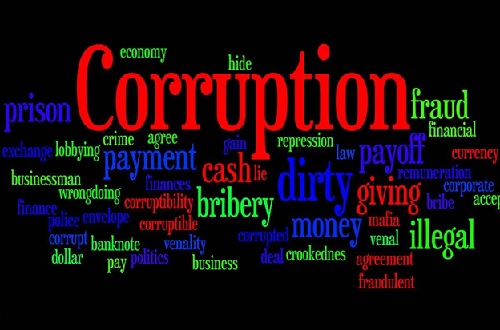
BY MENGISTEAB TESHOME
Corruption has continued to be the biggest challenge across the globe, with a special attention being given in the developing world where its prevalence is so vast.
In fact, initial attempts of anti-corruption have principally focused on corrupt practices and behaviors in the public sector only. Later on, however, it was realized that combating corruption requires dealing with corruption in sects of the society, other than the public sector. Accordingly, anti-corruption movements have been extended to private sectors, and there is also an effort to further extend it to all societal institutions.
Being the case, the scope of anti-corruption institutions in Ethiopia also reveal that Ethiopia’s anti-corruption efforts are limited to public and some private sectors only, leaving the vast majority of the societal sects unregulated.
It is crystal clear that corruption is a universal problem, driving each nation around the world to pay the price; and lead to various challenges. Unarguably, countries which are engrossed to a high level of corruption face several challenges; including institutional weaknesses, uneven distribution of wealth and income inequalities, crippled and slow economic growth. Not only does it affect long term sustainable economic development, it also causes social disorder and unrest by producing public grievances and leading to revolt.
We are witnessing that for the reason corruption sustains in the political and economic environment of the economy, a range of grand crimes and illicit activities harming and eroding the quality of services in addition to risking the peace and security of nations and suffering the entire society. Ethiopia, as a country striving to advance its development; and working round the clock to win its peoples’ expectations, faces some challenges associate with corruption and bribery.
As Prime Minister Abiy Ahmed stated recently while responding to questions raised by members of the Parliament, Ethiopia should fight corruption and pave the way for the posterity to shape and build institutions that safeguard the standards across all services.
The Premier has also mentioned some institutions that are said involved in the act of theft and corruption. As to him, corrupted institutions should be reformed and audited. Likewise, individuals should be audited so as to benefit the institutions. The Premier added that theft is becoming part of everyone’s activity which makes cancerous.
“Unless we act early in a comprehensive way, the reform will not bear fruit. We will conduct internal reform on those corrupted institutions. We must avoid moral decay. We must also resist undue external pressures that impede development, hamper unity, and undermine our national interests. Transnational institutions must be built on principle,” he underscored.
He further calls on religious fathers and institutions to strengthen efforts in building the moral values of citizens to abide by the rule of law. The Ethiopian Herald approached religious leaders to have their say how corruption is staking danger against the societies, the responsibility of religious fathers as well the way-out.
Pastor Nigus Mamo is resident of Debre Birahn Town, Semien Shewa Zone of Amhara State. He noted that corruption is the single greatest challenge that erodes and defeats efforts made by many nations, especially, in the developing world, it challenges efforts towards sustainable development and the promotion and strengthening of democratic institutions and values.
“As a spiritual leader, I feel the pain and the danger coming to Ethiopia. Some religious institutions are not working earnestly, and the moral values we are teaching the public are not as strong as they should be. It is high time to shift.”
He also noted that because breaks bribery rules and regulations, it created grave social risks. Services may be unavailable without an illegal side payment. Tax collectors may extort citizens or even more often collude with tax payers to abet evasion in exchange for a bribe.
“These all acts could not be healed unless we build moral values laying the foundation. The moral values and the norms of ethics and integrity, reflected in a number of public and private institutions are getting eroded, everyone has to turn provide a working solution to curb unethical behavior, corruption, and the culture of impunity among all institutions,” he remarked.
According to him, all bodies should make a working solution which involves economic and institutional reforms, prevention strategies, enforcement, political will, transparency, accountability, popular participation, the rule of law, and the democratic space; and go further towards the root cause of the problem than legal norms do.
Spiritual leader at Menagesha Genete Tsigie Cathedral of Saint George Orthodox Church Melake Genet also noted that the Premier’s effort to address the issue is commendable. “I have no complaint about the comment made by the Prime Minister. Yes, there is the responsibility of everyone to shape the generation; we are ready to discharge our efforts in building the moral value of the community.”
The Orthodox Church has been at the forefront in shaping the posterity and equipping it with high moral values. Though there are gaps, we should buckle up our efforts because the looming crisis is alarming.
In my view, the incumbent should develop a strategy of short, medium and long term plans. Any strategy to curb unethical behavior and corruption must address the issue of good governance because good governance is the ultimate architecture for diminishing corruption and impunity. Any strategy designed to combat unethical behavior and corruption must be a deep strategy focusing on economic and institutional reforms.
The Ethiopian Herald June 19/2022





